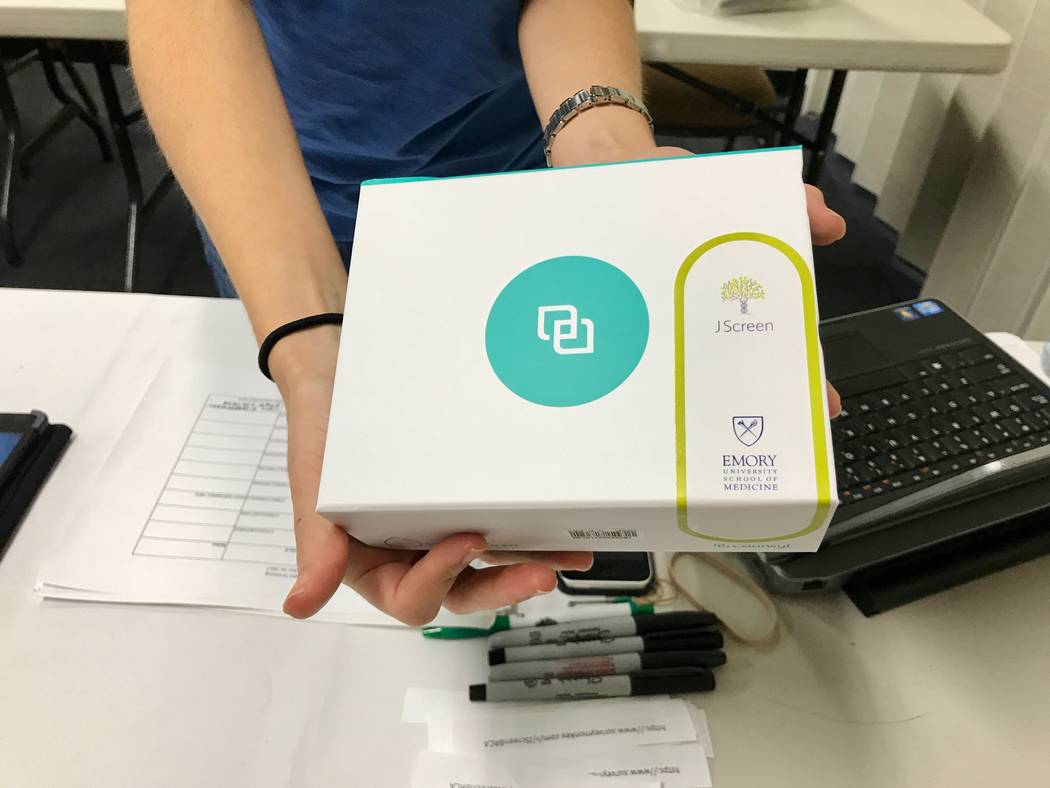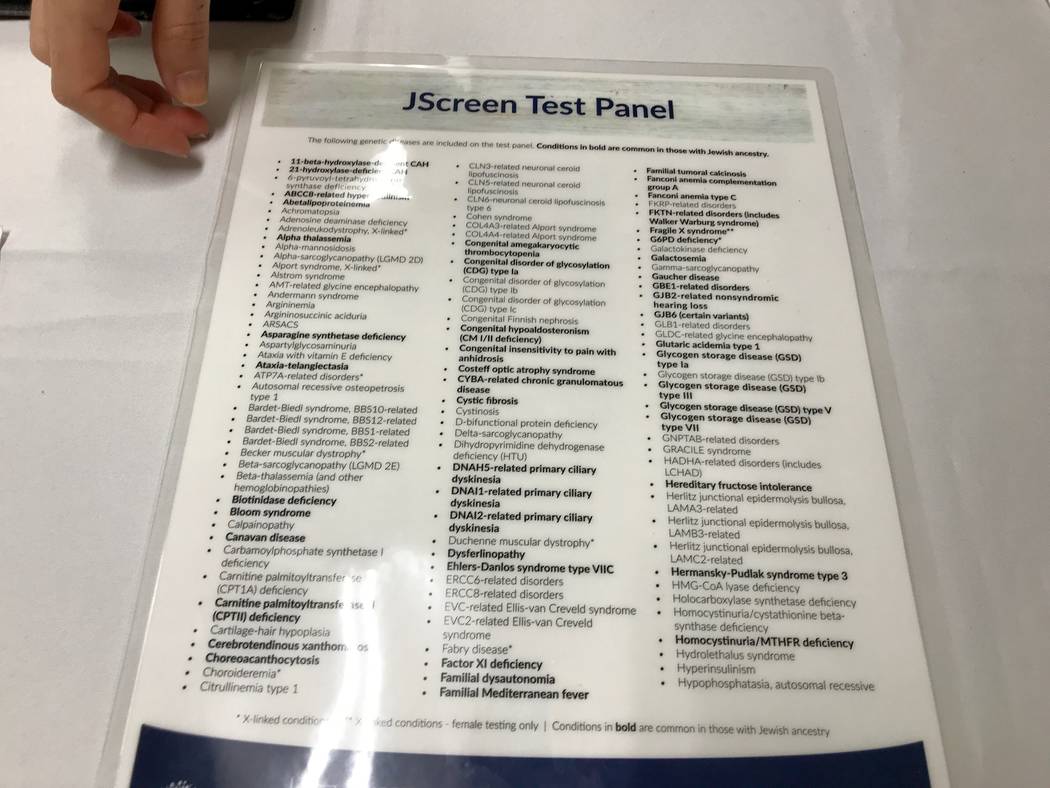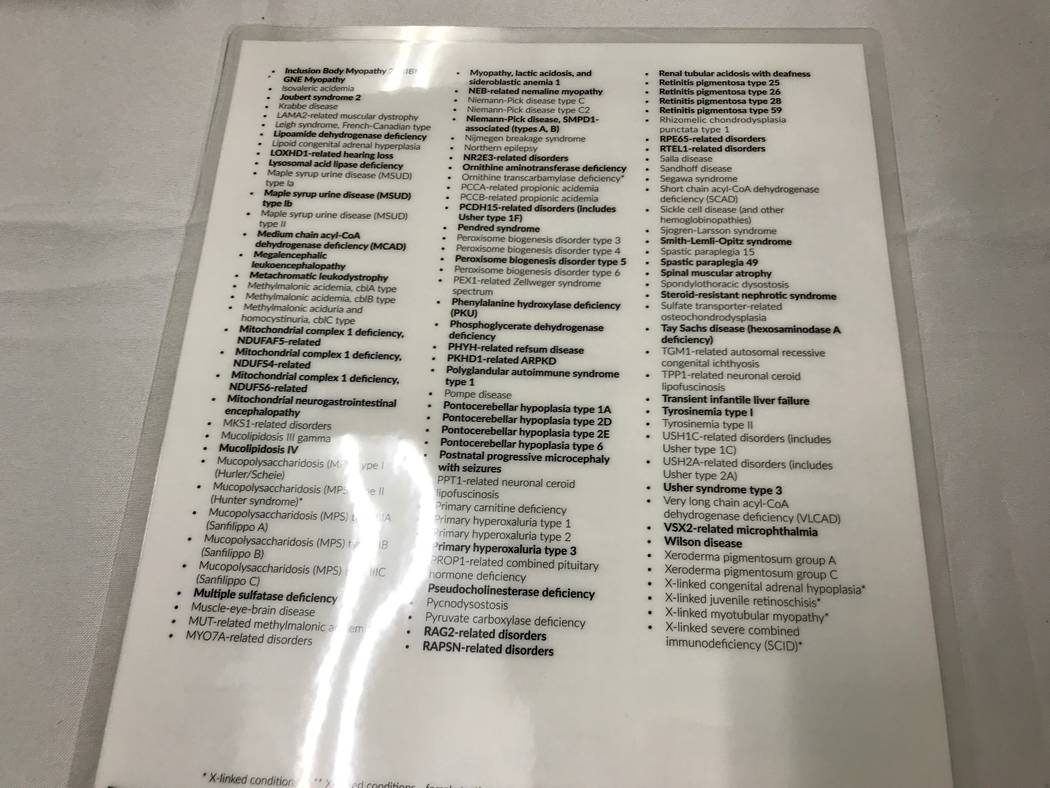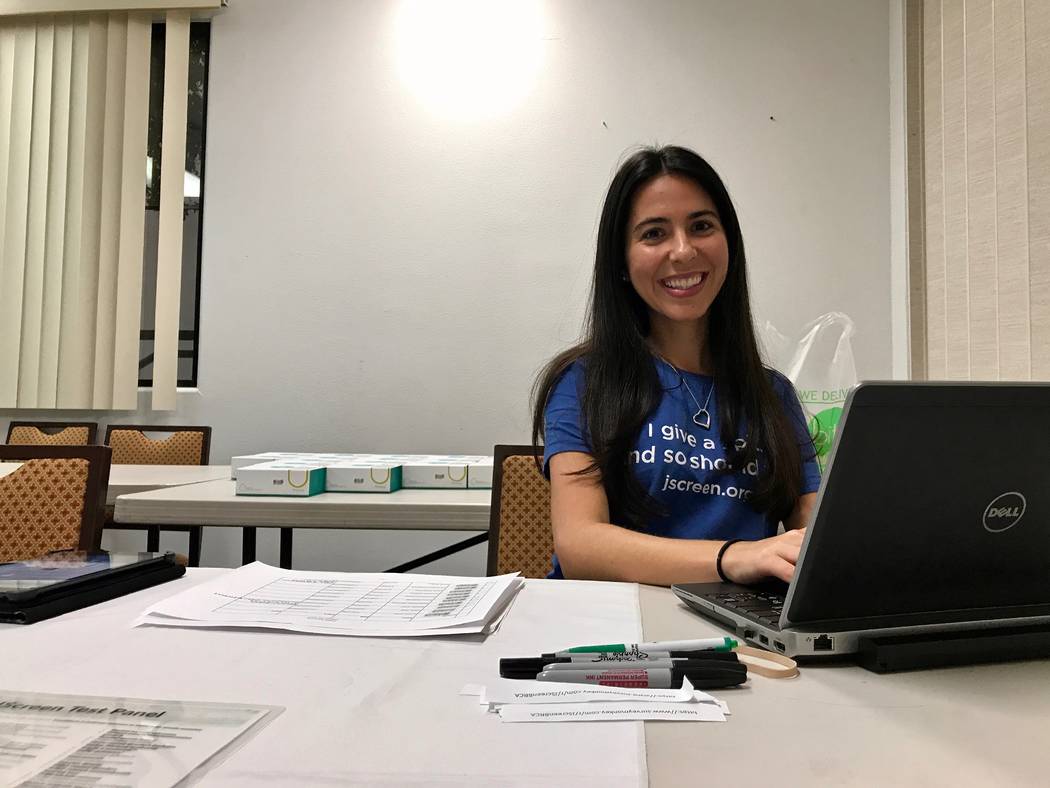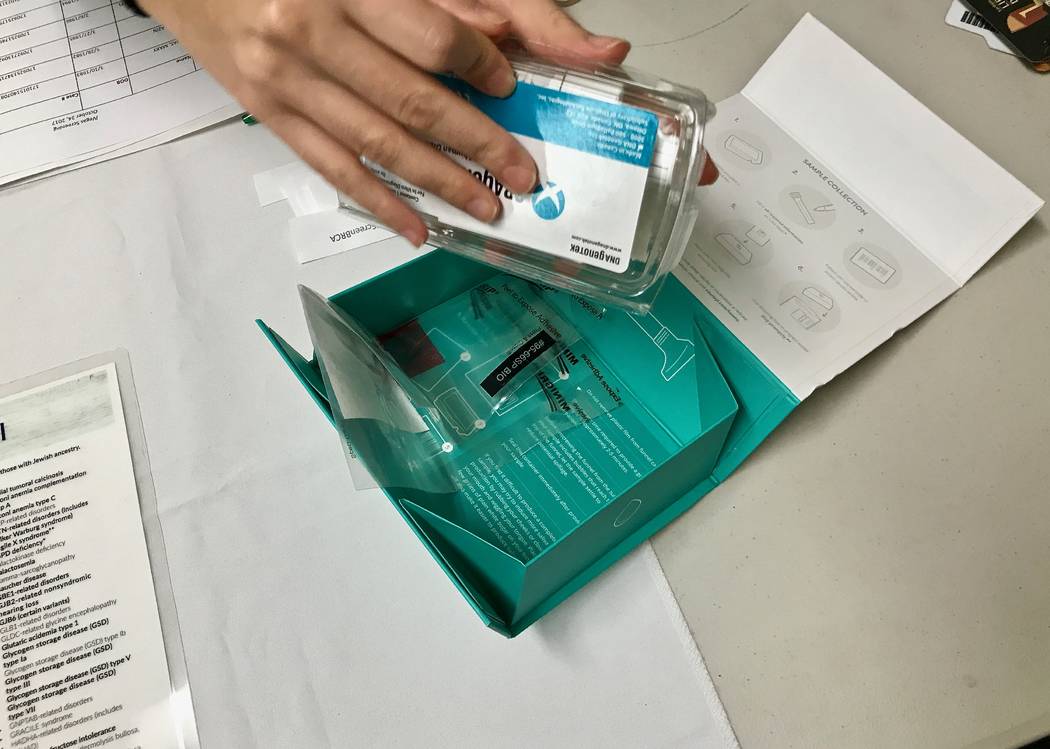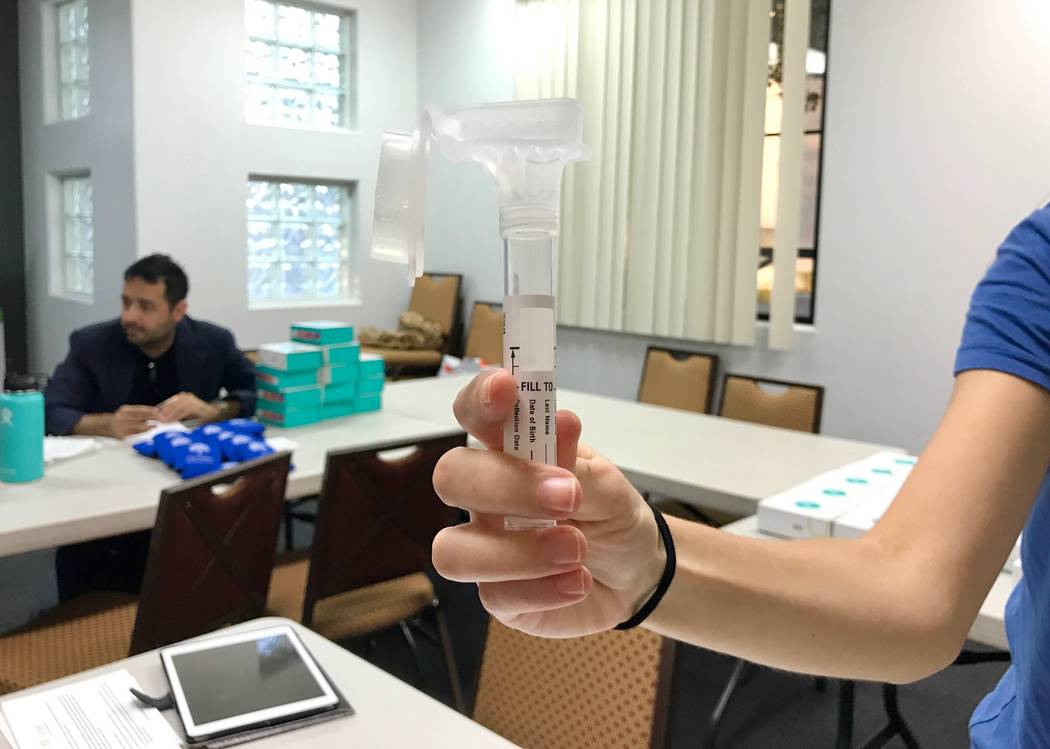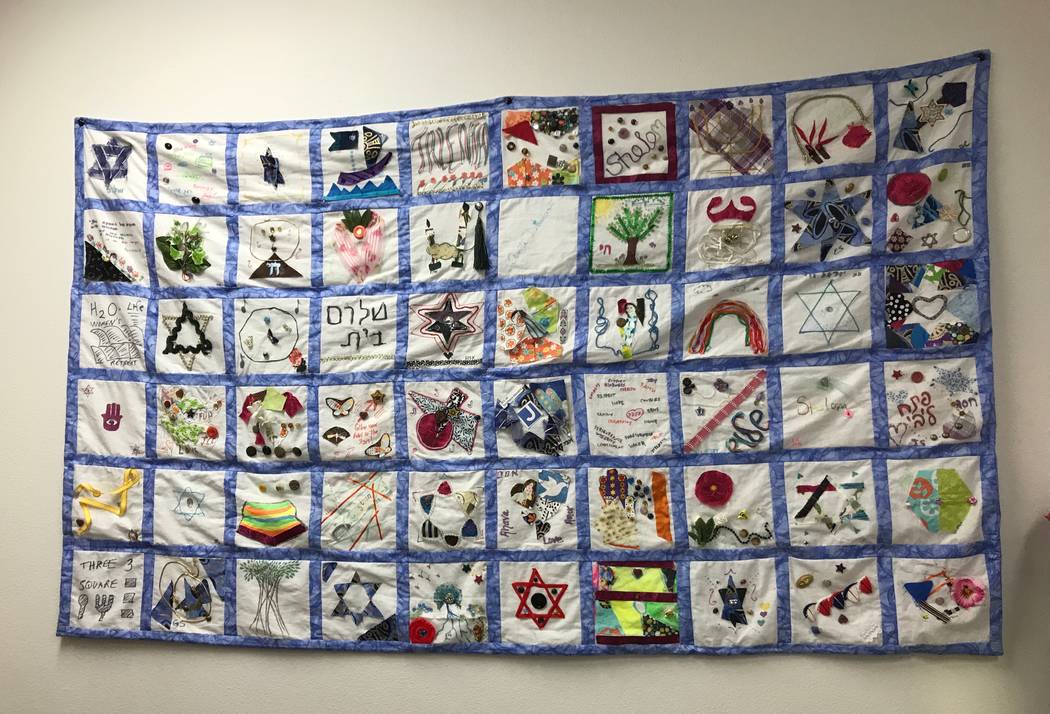JScreen event spreads awareness of Jewish genetic diseases
There’s likely a checklist every prospective parent goes through to make sure they’re prepared to have a child. Often enough, that doesn’t include genetic testing.
On Oct. 24, the Las Vegas Jewish Community Center hosted a genetic testing event with the nonprofit public health initiative JScreen that allowed fifty people in attendance to get tested for over 200 Jewish genetic diseases. JScreen is based at Emory University School of Medicine’s Department of Human Genetics in Atlanta.
JScreen’s assistant director of national outreach, Hillary Kener, showed people at the event how to give a sample of saliva in a plastic vial.
The event was organized by Jewish Nevada, a nonprofit organization. This is the first time the organization has partnered with JScreen and the first time JScreen has held an event in Las Vegas.
Many Jewish people are familiar with Tay-Sachs disease, a rare genetic disorder that destroys nerve cells in the spinal cord and brain, said Megan Weintraub, director of young leadership development for Jewish Nevada. The disease is more commonly found in people with Ashkenazi (eastern and central European) Jewish heritage. The gene occurs in about 1 in 27 people of Ashkenazi descent.
But there are “(many) other genetic diseases that tend to be more commonly found in people of Jewish descent that people don’t know about,” Weintraub said.
That includes Gaucher disease, which affects up 1 in 40,000 in the general population but is found in about 1 in 450 individuals with an Ashkenazi background. The disease results in the lack of an enzyme that breaks down a fatty substance called glucocerebroside, according to JScreen. The fat-laden cells can build up in the spleen, liver and bone marrow, causing low blood counts, bleeding, bruising, fatigue and liver and bone problems.
If both parents are carriers of one of the genetic mutations, there is a 1 in 4 chance that any pregnancy would result in a child with the disease.
“A lot of young people don’t know that (genetic testing) is something they should be doing,” Kener said. “Once you’re pregnant your options are very limited.”
The goal is to screen people prepregnancy, she said. The samples taken at ommunity centertesting events are shipped to JScreen labs for genetic sequencing. Results are available after about three to four weeks, Kener said. After the results are processed, a genetic counselor contacts those screened.
Jewish Nevada has partnered with a Las Vegas doctor, Weintraub said, so people can receive counseling locally.
The first 50 people to register for the event received their test free, she said.
“Cost is definitely a prohibitive factor as to why people don’t get the genetic testing done,” Weintraub said. “Because sometimes not all insurance (providers) cover it; (others don’t) cover all of it, or only cover certain panels.”
Testing through JScreen normally costs $149; kits can be ordered online and the testing can be completed at home.
Arielle Ventura, Jewish Nevada’s marketing director, decided to get tested .
“Since I moved to Las Vegas it’s been a topic of conversation among a lot of my friends who are having babies,” she said. “I think the big thing is my mom is adopted, and so I don’t really know her background, nor does she.”
The 200 diseases JScreen tests for are not exclusively Jewish . Many occur more frequently in Jewish populations but can be carried by those of non-Jewish descent.
Diseases JScreen tests for include cystic fibrosis, spinal muscular atrophy, sickle cell anemia, Wilson’s disease, Bloom syndrome and Canavan disease.
“I think (my) main motivation is that I’m in a committed relationship, and before we have children … it’s just to be proactive,” Ventura said.
If a couple finds out that they are both carriers of a genetic disease, steps can then be taken to plan for a healthy pregnancy, Kener said.
“People are always going to be carriers (for genetic diseases),” she said. “This is really to give people the knowledge of their status and ultimately prevent these diseases in our children.”
Some options available to couples include using donor sperm or eggs, in vitro fertilization to monitor the embryo or adoption. Couples can also choose to continue with a pregnancy and monitor for genetic conditions along the way.
“Some couples choose to continue, but at least this gives them information,” Kener said. “They’ll be able to make doctor appointments instead of spending valuable time to get these diseases diagnosed.”
Contact Madelyn Reese at mreese@viewnews.com or 702-383-0497. Follow @MadelynGReese on Twitter.
Genetic diseases
Prevalence of carriers in the general population:
Cystic fibrosis: 1 in 30
Spinal muscular atrophy: 1 in 55
Gaucher disease: 1 in 78
Tay-Sachs: 1 in 171
Usher syndrome Type 1: 1 in 194
Canavan disease: 1 in 432
Bloom syndrome: 1 in 500
Joubert syndrome: 1 in 732
Source: jscreen.org/everyone



